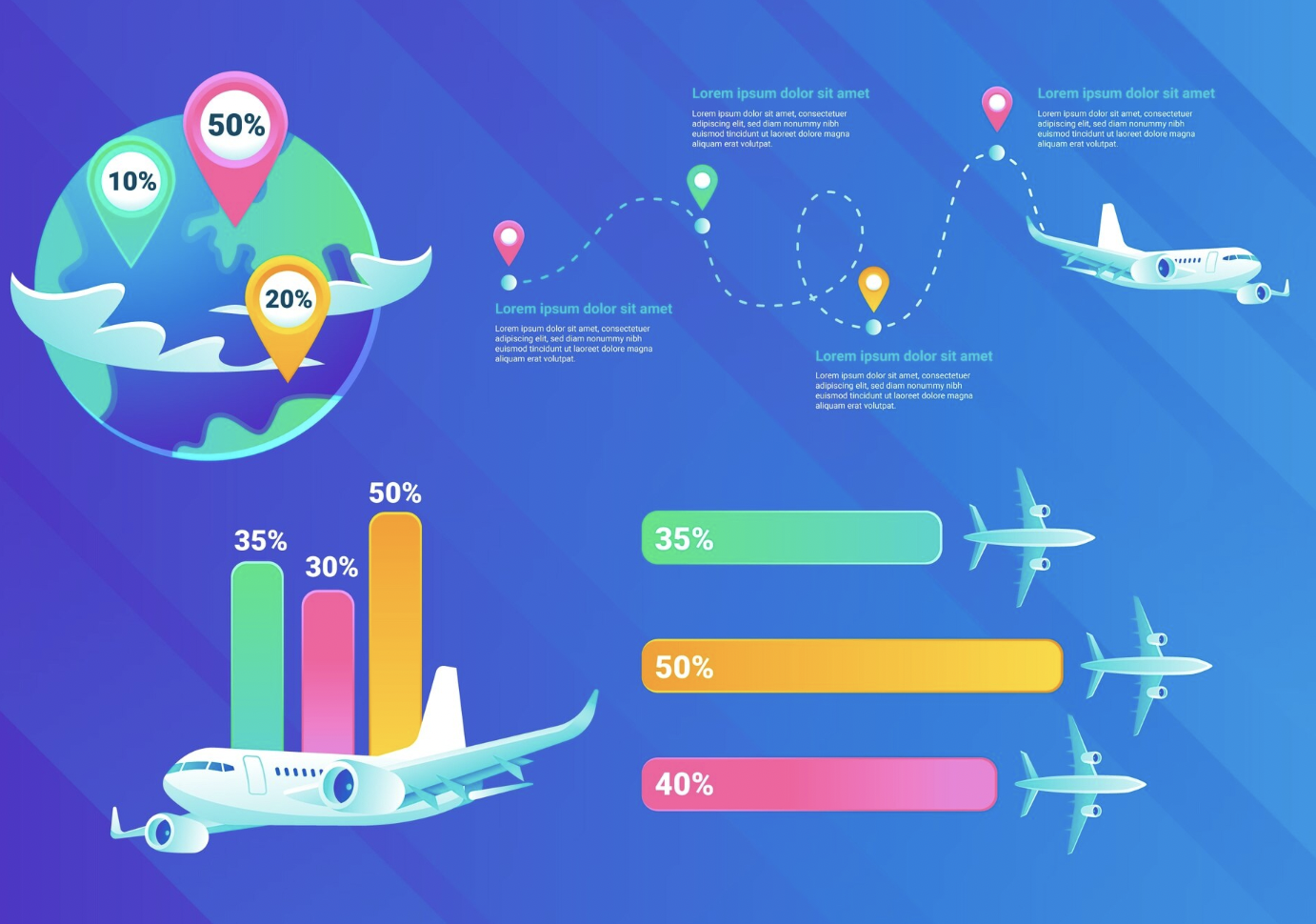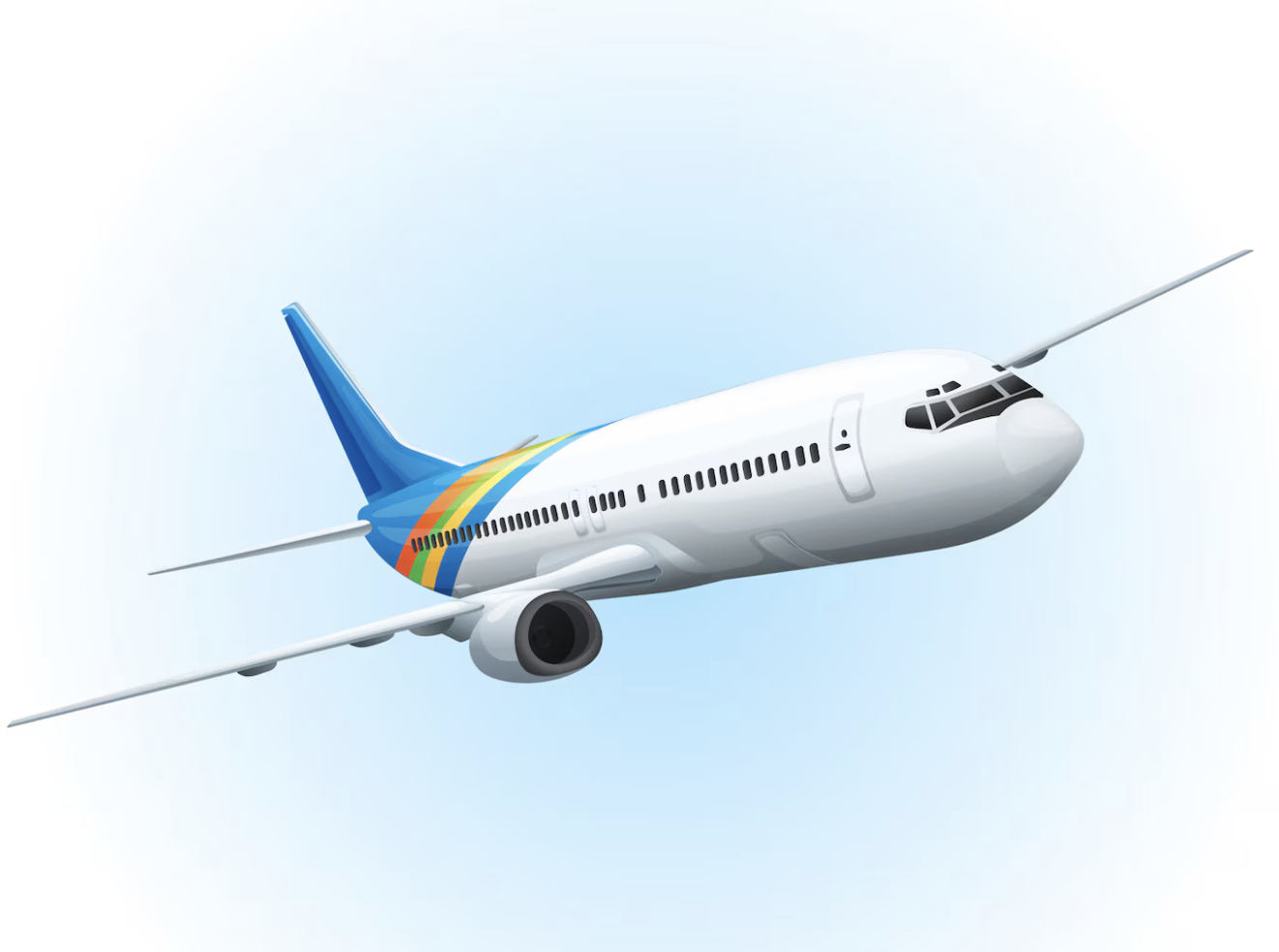In the fast-paced world of air travel, customer satisfaction is critical. Delays, cancellations, and changes in flight schedules are common, and how airlines handle these situations can make or break their reputation. This is where social media analytics can play a vital role in delivering real-time customer support, helping airlines respond quickly to customer needs and concerns.
The Importance of Social Media in Customer Support
Social media has revolutionised how businesses interact with customers. For airlines, it offers a direct line of communication with passengers. Customers are increasingly turning to social media platforms like Twitter, Facebook, and Instagram to voice their concerns, ask questions, and seek assistance. This shift has made it essential for airlines to be active and responsive on these channels.
But simply having a presence on social media isn’t enough. Airlines need to be able to respond quickly and effectively to customer inquiries. This is where social media analytics comes in. By leveraging analytics, airlines can monitor customer interactions in real-time, identify emerging issues, and respond promptly.
Leveraging Social Media Analytics for Real-Time Response
Social media analytics allows airlines to track and analyze customer interactions across various platforms. This data provides valuable insights into customer behavior, preferences, and sentiment. By analyzing this data, airlines can identify trends, such as common complaints or frequently asked questions, and address them proactively.
For example, if there is a sudden spike in complaints about flight delays on Twitter, an airline can quickly investigate the issue and provide timely updates to affected passengers. This real-time response not only helps to resolve the issue quickly but also demonstrates to customers that the airline is attentive and responsive.
Enhancing Customer Experience Through Personalization
One of the significant advantages of social media analytics is the ability to personalise customer interactions. By analysing customer data, airlines can gain insights into individual preferences, travel history, and previous interactions. This information allows airlines to tailor their responses to meet the specific needs of each customer.
For instance, if a frequent flyer tweets about a problem with their recent flight, the airline can recognize their loyalty and offer a personalised response, such as a discount on their next booking or access to a lounge. Personalization not only helps to resolve issues more effectively but also strengthens the relationship between the airline and the customer.

The Role of Automation in Real-Time Customer Support
Automation is another key component of real-time customer support. With the help of chatbots and AI-driven tools, airlines can handle a high volume of inquiries efficiently. These tools can be programmed to respond to common questions, such as flight status updates or baggage policies, freeing up human agents to focus on more complex issues.
For example, a customer may ask a chatbot on Twitter for the status of their flight. The chatbot can quickly pull up the relevant information and provide an instant response. If the inquiry is more complex, the chatbot can escalate the issue to a human agent who can assist the customer further.
Automation also enables airlines to maintain a consistent level of service, even during peak times or in emergency situations. By handling routine inquiries automatically, airlines can ensure that customers receive prompt and accurate responses, enhancing their overall experience.
Proactive Issue Resolution
Social media analytics allows airlines to be proactive in resolving issues before they escalate. By monitoring social media platforms in real-time, airlines can identify potential problems early and take action to prevent them from becoming major issues.
For example, if a passenger tweets about a long wait at the boarding gate, the airline can immediately investigate the cause and provide an update to the passenger, offering reassurance or alternative solutions. This proactive approach not only helps to resolve the issue quickly but also shows customers that the airline is committed to providing excellent service.

The Importance of Being Available on Every Communication Platform
When it comes to real-time customer support, it’s crucial for airlines to be available on every communication platform that customers use. While social media platforms like Twitter and Facebook are popular, WhatsApp has emerged as a powerful tool for customer support. With millions of users worldwide, WhatsApp offers a direct and personal way for airlines to connect with their customers.
WhatsApp is particularly effective for real-time customer support because people are constantly active on this channel. Customers can reach out to the airline through WhatsApp to ask questions, check flight status, or even book tickets. This level of accessibility ensures that customers can get the support they need, whenever they need it.
Indigo, for example, has embraced WhatsApp for customer support. Not only can customers reach out for help, but they can also book flights directly through the platform. This seamless integration of services makes it easy for customers to interact with the airline, enhancing their overall experience. You can read more about this service here.
Measuring Success with Social Media Analytics
Social media analytics not only helps airlines provide real-time customer support but also allows them to measure the success of their efforts. By tracking key performance indicators (KPIs) such as response times, customer satisfaction scores, and the volume of resolved inquiries, airlines can evaluate the effectiveness of their social media customer support.
These metrics provide valuable insights into areas where the airline is excelling and where there is room for improvement. For example, if response times are slower than desired, the airline can explore ways to optimise their processes or allocate more resources to social media support. Regularly analysing these metrics ensures that the airline can continuously improve its customer support and meet evolving customer expectations.
Managing Crises Through Social Media
In the airline industry, crises are inevitable. Whether it’s a weather-related disruption, a technical glitch, or a public relations issue, airlines need to be prepared to respond quickly and effectively. Social media plays a crucial role in crisis management, as it allows airlines to communicate directly with customers in real-time.
Social media analytics can help airlines identify and respond to crises as they unfold. By monitoring social media channels, airlines can detect early signs of a crisis and take immediate action to address the situation. For example, if a technical issue causes a delay and passengers start voicing their frustrations on social media, the airline can quickly acknowledge the problem, provide updates, and offer solutions to affected customers.
Effective crisis management on social media requires a combination of real-time monitoring, proactive communication, and swift action. By leveraging social media analytics, airlines can navigate crises more effectively, minimizing the impact on their customers and their brand reputation.
Building Trust and Loyalty Through Social Media Customer Support
In the competitive airline industry, building trust and loyalty is essential for long-term success. Social media customer support plays a vital role in this process. When customers know that they can rely on an airline to respond quickly and effectively to their needs, they are more likely to remain loyal and recommend the airline to others.
Social media analytics helps airlines build trust by ensuring that customer inquiries are addressed promptly and accurately. By providing personalised responses and resolving issues in real-time, airlines can demonstrate their commitment to customer satisfaction. This not only enhances the customer experience but also strengthens the relationship between the airline and its passengers.

The Future of Social Media Customer Support in Airlines
As technology continues to evolve, so too will the role of social media in customer support. Airlines that embrace social media analytics and automation will be better positioned to meet the changing needs of their customers. The ability to provide real-time, personalized support will become increasingly important in maintaining a competitive edge.
Looking ahead, we can expect to see further integration of social media with other customer service channels, such as chatbots, voice assistants, and mobile apps. Airlines that invest in these technologies will be able to offer a seamless and consistent customer experience across all touchpoints, ensuring that their passengers receive the support they need, whenever and wherever they need it.
Why Trooya is the Ideal Solution for Airlines
For airlines looking to excel in social media customer support, Trooya offers a comprehensive solution. Trooya is a cloud-based social media contact centre that enables airlines to respond to customers, resolve their issues, and earn their goodwill efficiently.
Trooya’s advanced analytics capabilities allow airlines to monitor social media interactions in real-time, prioritise inquiries based on urgency, and ensure that customers receive timely and personalised responses. Trooya also offers automation tools, enabling airlines to handle a high volume of inquiries without compromising on quality.
Designed to meet the unique needs of the airline industry, Trooya ensures that airlines can deliver exceptional customer support on social media, building trust and loyalty with their passengers. By integrating Trooya into their social media strategy, airlines can stay ahead of the competition and provide the real-time support that today’s customers expect.
Conclusion
In the digital age, social media has become a critical channel for customer support in the airline industry. By leveraging social media analytics, airlines can provide real-time, personalised support that meets the evolving needs of their passengers. From enhancing response times to managing crises, social media analytics offers a range of benefits that can help airlines build trust, loyalty, and a competitive edge.
As customer expectations continue to rise, particularly in terms of speed and accessibility, airlines must ensure that their social media customer support is as efficient and responsive as their flight services. With tools like Trooya, airlines can achieve this balance and deliver exceptional customer support that enhances the overall travel experience.

